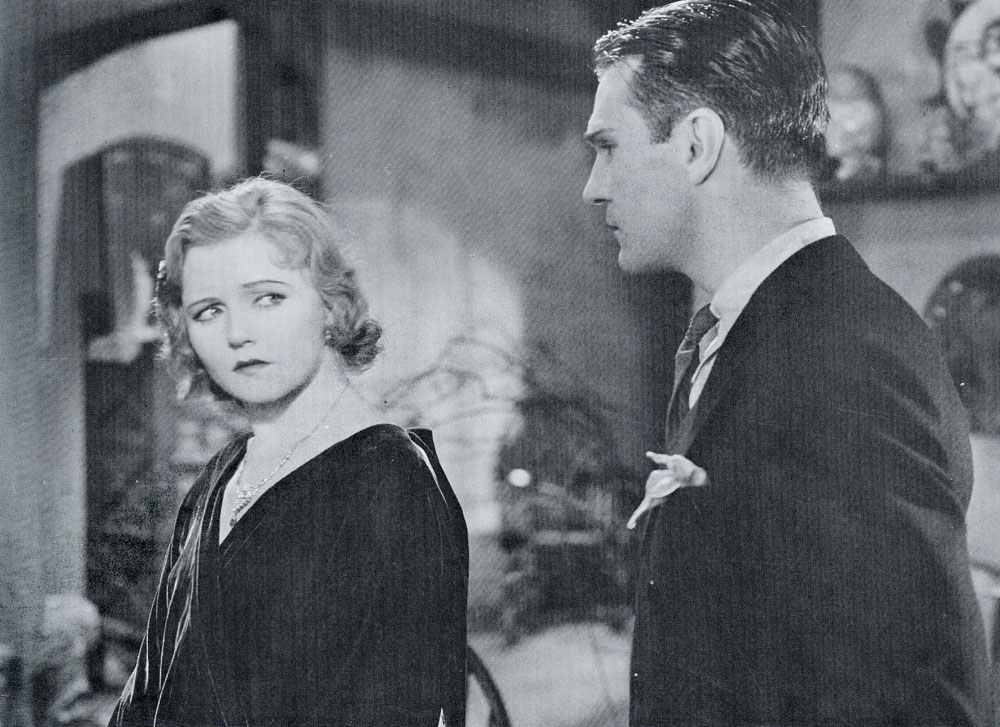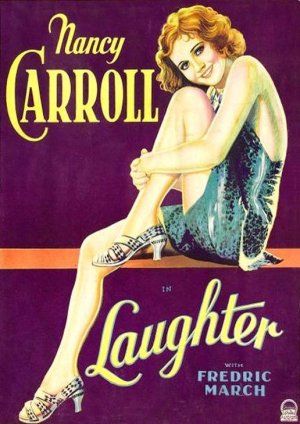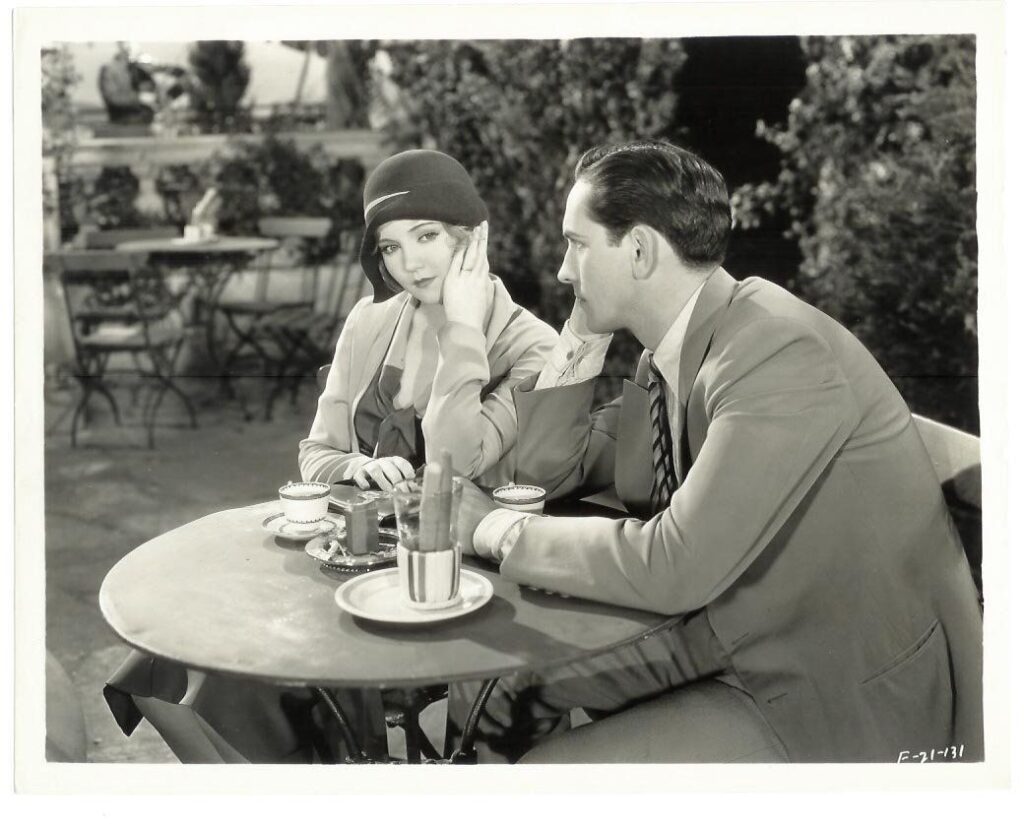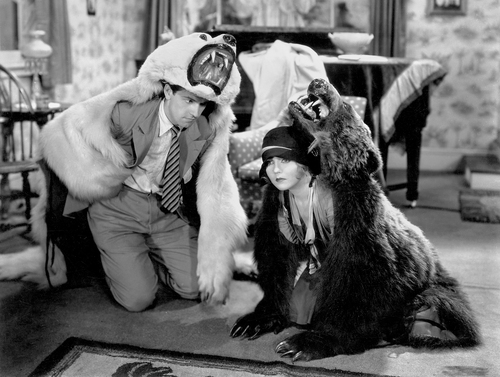Written in May 2021 for Il Cinema Ritrovato’s July catalog. — J.R.
LAUGHTER
A chorus girl (Nancy Carroll) marries a much older tycoon (Frank Morgan) but can’t break her ties to a dour, bitter sculptor (Glenn Anders, whose suicidal character here could have encouraged Orson Welles to cast him as the funnier but equally creepy Grisby in The Lady from Shanghai) and a chipper pianist-composer (Fredric March at his most energetic).The fact that we can’t even tell whether Laughter (1930) has a happy ending may be the best—or at least the most interesting–thing about it.

It may be the closest Hollywood ever came to the sophistication and autocritical narcissism of F. Scott Fitzgerald’s flapper prose, complete with all its sad ambivalence about extravagance and glitter. Shot in Paramount’s Astoria studio only a few months after the Wall Street crash, it was clearly ahead of its time, anticipating screwball comedy, Donald Ogden Stewart’s Marxism, and comic dialogue with domestic gender reversals by several years. A melancholy farce put together by privileged partygoers who knew how to superimpose their morning hangovers over the giddy evening shenanigans that produced them, it feels personally expressive of at least two of the three men credited for the Oscar-nominated original screenplay: director Harry d’Abbadie d’Arrast, Stewart, and perhaps even the lesser-known Douglas Doty.
But what about the film’s probable producer, Herman Mankiewicz? Some sources cite Monta Bell instead, so maybe they coproduced—and maybe Mank contributed to the script (along with Carole Lombard, who reportedly made several helpful suggestions), but who knows or cares? Later, he dubbed this film his favorite that he worked on, blaming its commercial failure on its gloomy strictures on the shallowness of glitz—strictures which also turn up in Citizen Kane. D’Arrast was an aristocrat who eventually left movies to work at a French casino; Stewart and Mankiewicz were Algonquin wits, and both had their own caustic reflections on Art Deco, but the former wound up blacklisted in England and the latter stayed drunk and bicoastal, thereby earning the reverence of Kael and the Finchers.



